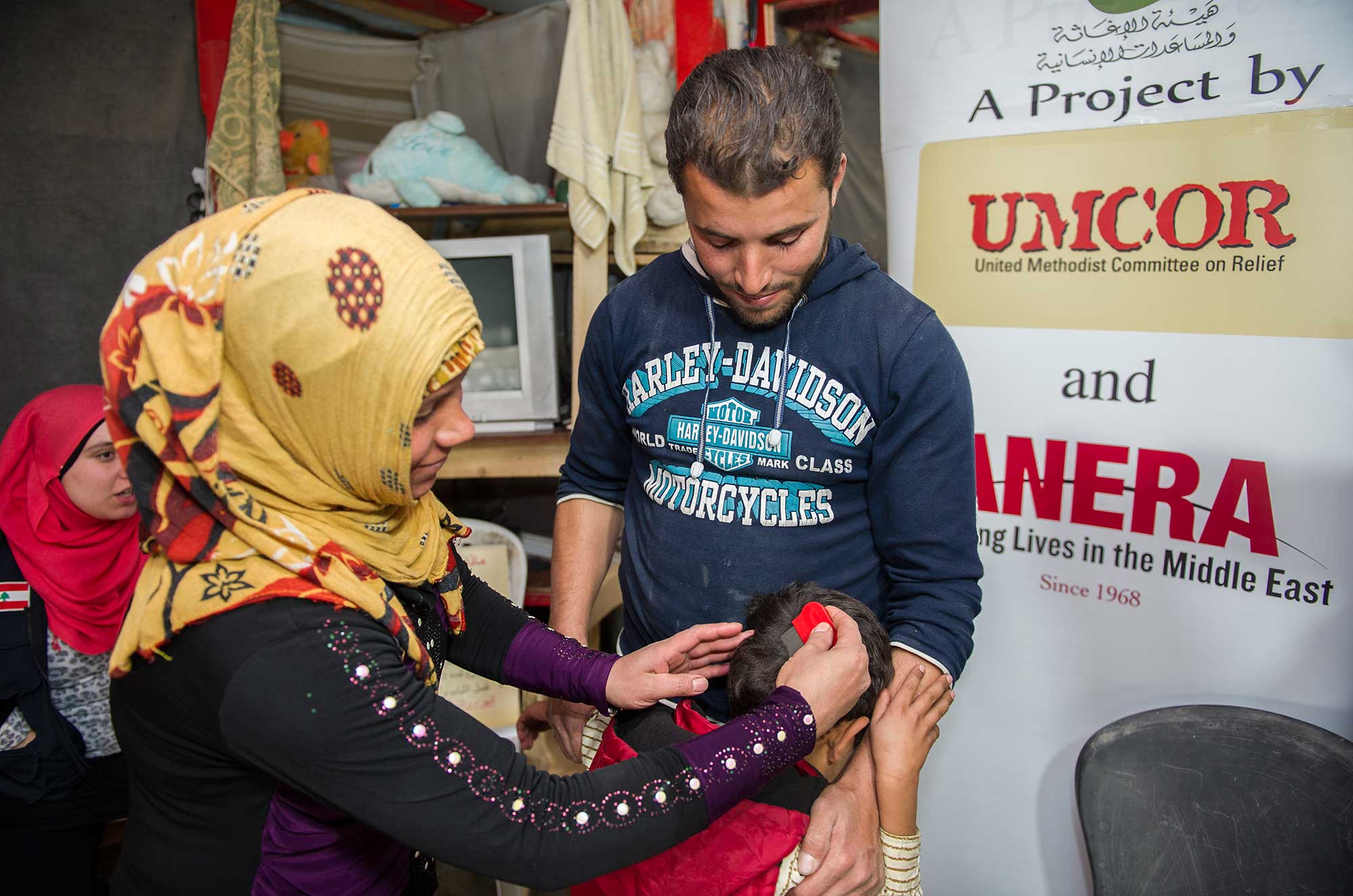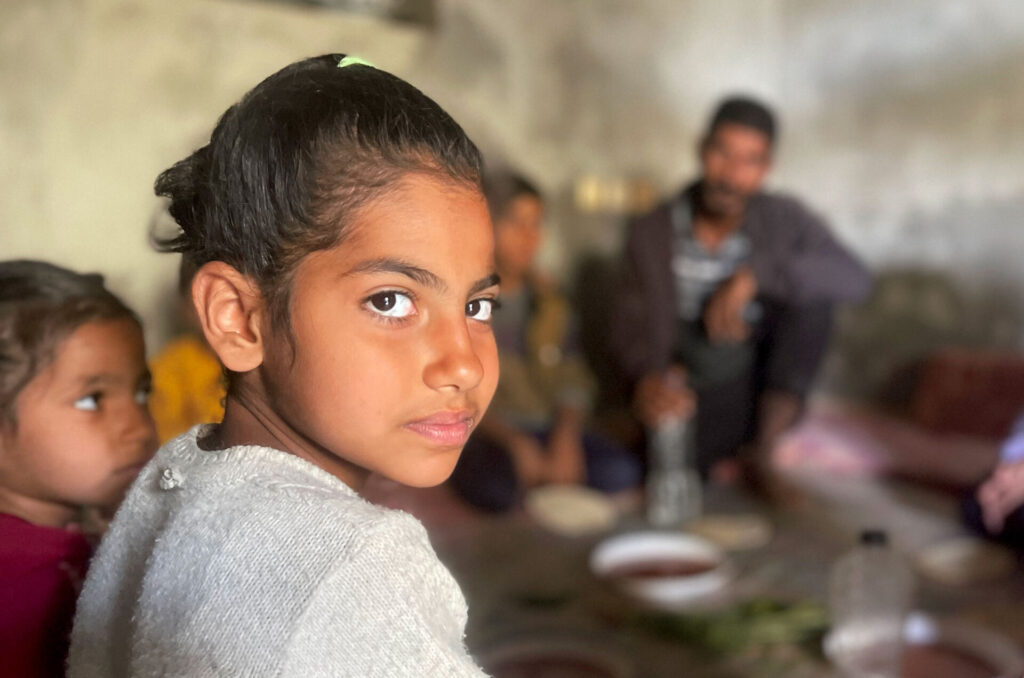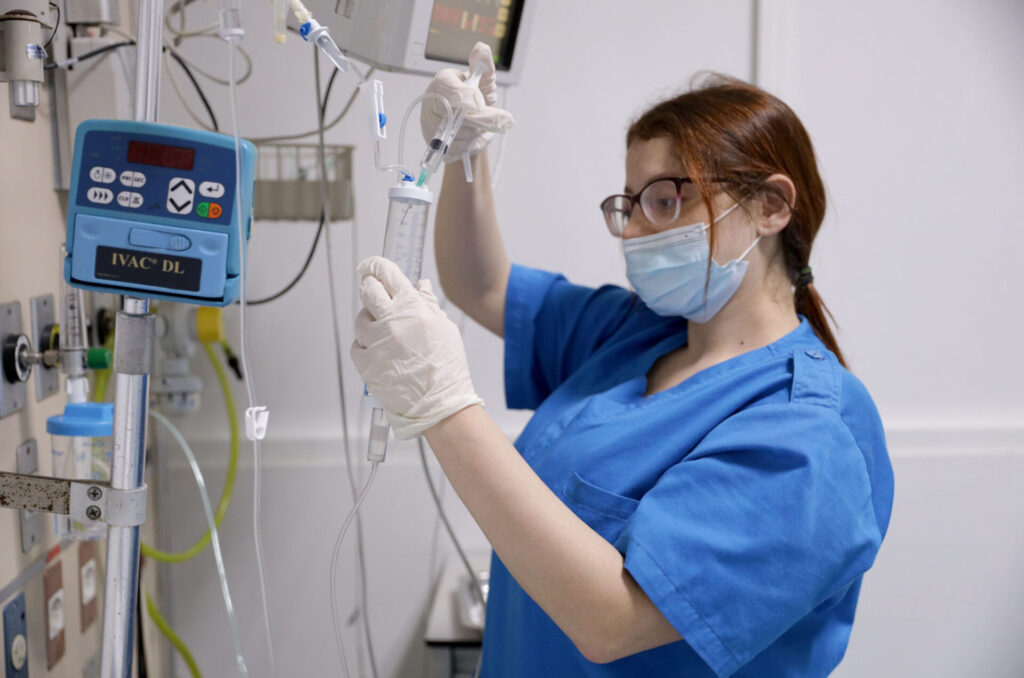Dec, 2015
One of the basic priorities for mothers living in makeshift refugee camps in Lebanon is the health and safety of their children.
Access to health education is key. In Zahle 601, a Syrian refugee camp in the Bekaa Valley, Aicha is showing a group of her camp neighbors how to use a lice comb to keep their children free of the parasite. Her seven-year-old son sits nearby and watches too.
Aicha, who preferred not to share her last name, is a resident of the camp and a newly trained lice-prevention volunteer, committed to sharing lice prevention and treatment techniques with the other 23 families in the camp.
Anera Trains Syrian Volunteers in Prevention and Treatment
With funding from United Methodist Committee on Relief (UMCOR), Anera has partnered with Relief and Humanitarian Aid Organization (RHAO or Dar Al Fatwa) to implement its lice prevention program. The program aims to reach some 5,000 families across the Bekaa Valley.
Anera’s strategy, in addition to treatment, is to educate the community and dispel stereotypes. Anera trained over 50 community volunteers, known as the Lice Guards, on ways to prevent, detect, and treat lice in the different camps. The volunteers, in turn, disseminate the information to mothers and fathers in the community and help them screen their children.


Jamil Ali Ahmad, a Syrian father of two and a trained volunteer of the project, trained the volunteers in Camp 601. He stresses how important the training sessions are in confronting misconceptions and poor treatment practices. “Originally, some people thought lice were good for the health, thinking it sucked the ‘bad blood’ out of your system,” Ahmad explained. “Others treated lice with rat poison and other harsh chemicals they applied to children’s hair.”
Dispelling Myths to Create a Healthier, Safer Community
More harmful than the misconceptions are the social stigmas associated with lice infestations. It is commonly believed, for example, that poor hygiene practices cause lice outbreaks. Ahmad explained that once a person in the community is known to have lice, others refuse to come in direct contact with the individual and his or her family. Fear of social isolation keeps individuals from discussing the problem, let alone treating it.
Contrary to popular belief, lice infestation is mostly related to overcrowding and not to lack of hygiene. Similar to the other 370,000 Syrian refugees in the Bekaa Valley, the refugees in Camp 601 suffer harsh living conditions in cramped, overcrowded tented settlements with limited access to public health in Lebanon.
Part of Anera’s goal is to quell the myths and stereotypes that keep people from seeking treatment for lice. Nadine Abdallah, Anera’s public health specialist, described why a holistic, community-based approach to treatment is so important.
“People from the camp are training their friends and neighbors so it becomes a peer-based initiative. Gaining accurate information from a friend or a trusted source can help break stigmatization around the issue.”
Volunteer trainer Ahmad agreed. “With adequate training and proper tools, our communities can be healthier and safer, especially for children.”




